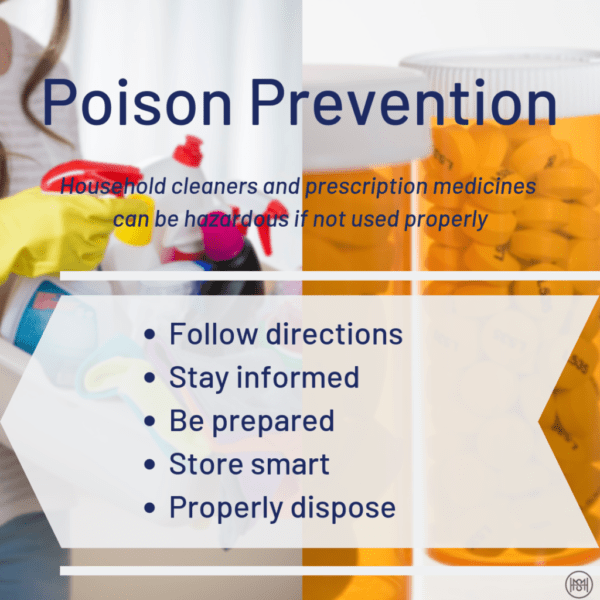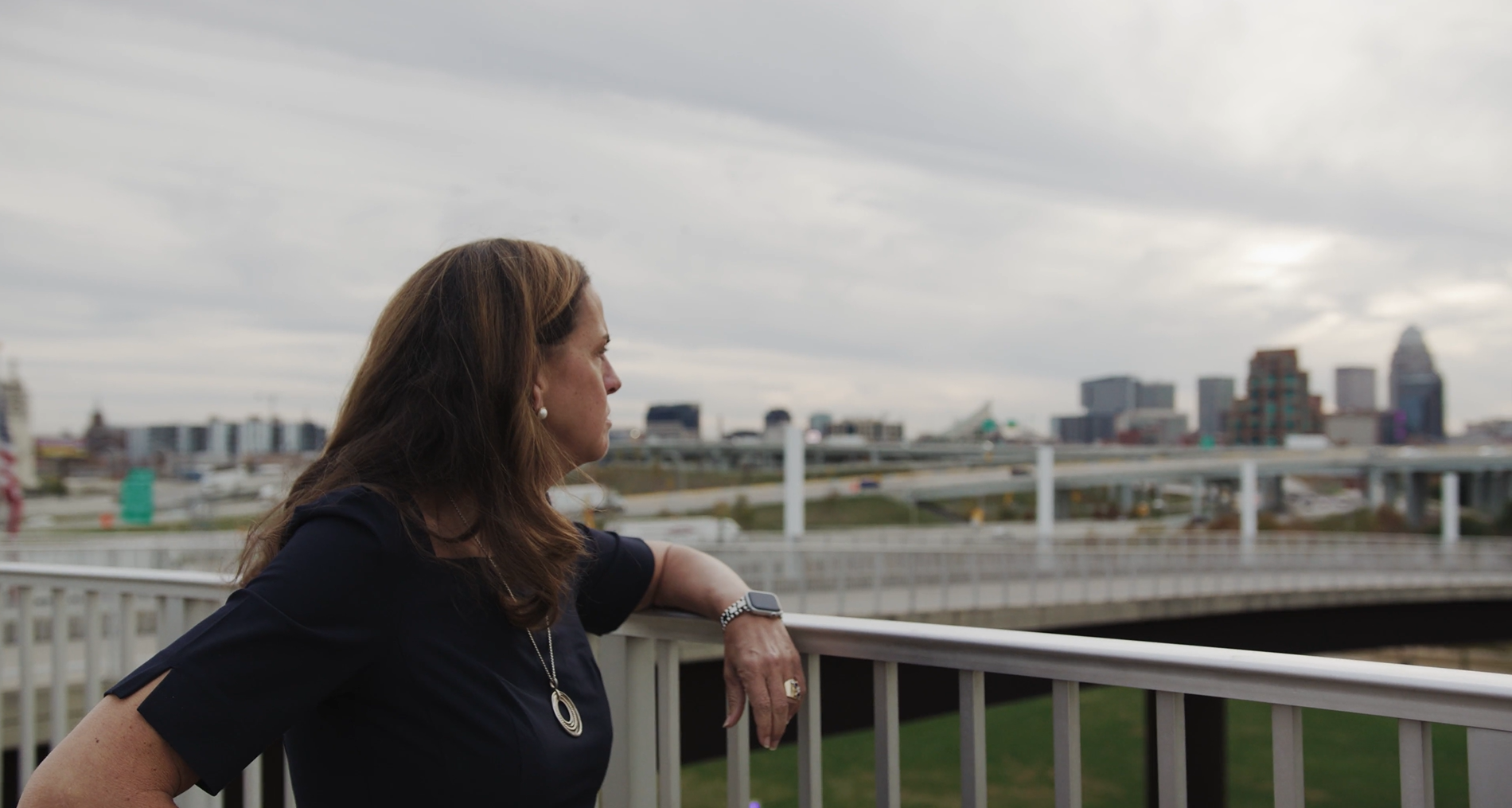More than 2 million poison exposures were reported to poison control centers in 2017. Nearly half of those reported were due to household items such as cleaners, cosmetics, and supplements. Poison prevention is vital in every household, but extra measures should be taken in homes with children, as nearly half of all poison exposures were in children younger than six.
Poison prevention begins with staying informed. Read labels on anything that you bring into your home, especially cleaners and medicines.
Drugs & Medicines
- Only take prescription medications that are prescribed to you and follow the dosage that was prescribed by your doctor.
- Never take larger or more frequent doses of your medication without consulting your doctor
- Never share your prescription medicines
- Keep medicines in their original containers
- Monitor your child’s use of medicines
- Store medicines out of reach for young children
Household Chemicals
- Keep cleaners and chemical products in their original containers
- Never mix products together. Mixing simple household cleaners together can create dangerous compounds.
- Mixing bleach and ammonia can result in toxic fumes.
- Wear protective clothing including gloves, sleeves, long pants, socks and shoes when using pesticides or other harsh chemicals
- Increase airflow in your home by turning on a fan or opening windows when using strong household cleaners.
- Store household chemicals out of reach of young children or use effective child locks to ensure children cannot access the hazardous materials.
Be prepared – sometimes precautions fail, put the poison help number 1-800-222-1222 in a highly visible place in your home and save it on your cell phone. This line is open 24 hours a day, 7 days a week.
If poisoning does occur, remain calm and call the poison help number. It’s important to know the victim’s age and weight, time of poison exposure, type of poison consumed, and the address where emergency services are needed.

